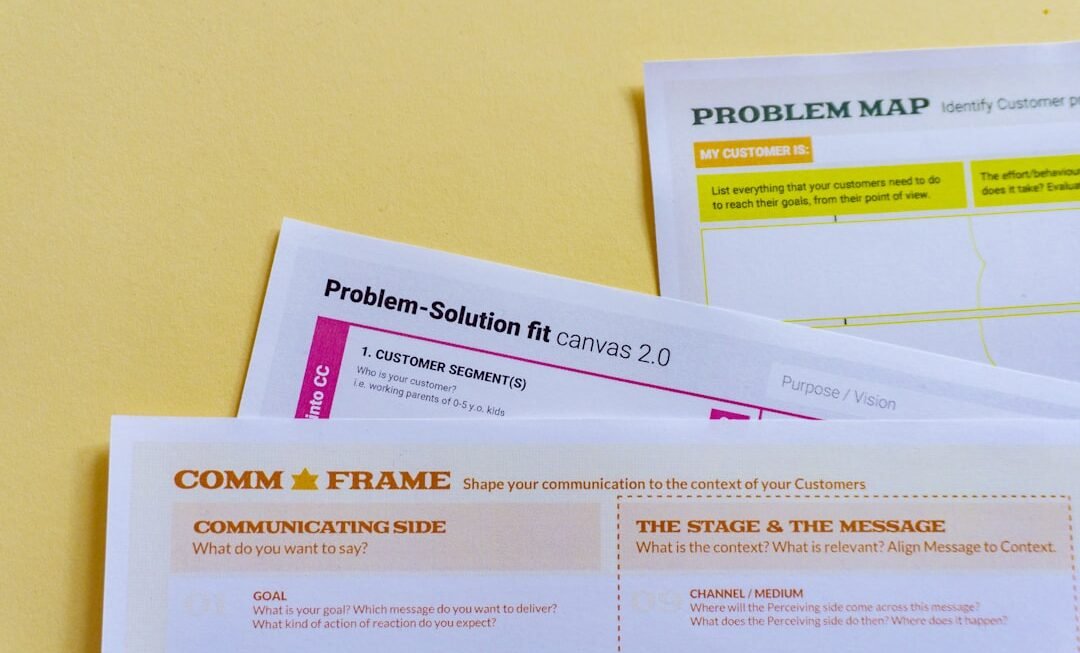The advent of artificial intelligence (AI) has revolutionized numerous sectors, and customer relationship management (CRM) is no exception. AI-driven CRM systems leverage advanced algorithms and machine learning techniques to enhance the way businesses interact with their customers. These systems are designed to analyze vast amounts of data, providing insights that were previously unattainable through traditional CRM methods.
By integrating AI capabilities, organizations can automate routine tasks, predict customer behavior, and personalize interactions, ultimately leading to improved customer satisfaction and loyalty. AI-driven CRM systems are not merely an upgrade to existing CRM solutions; they represent a paradigm shift in how businesses approach customer relationships. Traditional CRM systems often rely on historical data and manual input, which can lead to inefficiencies and missed opportunities.
In contrast, AI-driven systems continuously learn from new data inputs, adapting to changing customer preferences and market dynamics. This adaptability allows businesses to stay ahead of the curve, ensuring that they can respond to customer needs in real-time and maintain a competitive edge in an increasingly crowded marketplace.
Key Takeaways
- AI-driven CRM systems use artificial intelligence to analyze and interpret customer data, providing valuable insights for sales and marketing teams.
- Benefits of AI-driven CRM systems include improved sales and marketing integration, enhanced customer insights, and more accurate sales forecasting.
- AI-driven CRM systems improve customer insights by analyzing data from various sources to identify patterns, preferences, and behaviors.
- AI-driven CRM systems play a crucial role in sales forecasting by analyzing historical data, market trends, and customer behavior to predict future sales.
- Leveraging AI-driven CRM systems for personalized marketing campaigns allows businesses to tailor their messaging and offers to individual customer preferences and behaviors.
Benefits of AI-Driven CRM Systems for Sales and Marketing Integration
One of the most significant advantages of AI-driven CRM systems is their ability to seamlessly integrate sales and marketing efforts. Traditionally, these two departments have operated in silos, often leading to miscommunication and missed opportunities. AI-driven CRM systems bridge this gap by providing a unified platform where both teams can access shared data and insights.
This integration fosters collaboration, enabling sales and marketing teams to work together more effectively toward common goals. For instance, AI algorithms can analyze customer interactions across various touchpoints, identifying patterns that inform both sales strategies and marketing campaigns. By understanding which marketing efforts lead to successful sales conversions, organizations can refine their approaches, ensuring that resources are allocated efficiently.
Additionally, AI-driven insights can help in segmenting customers based on their behaviors and preferences, allowing for targeted marketing initiatives that resonate with specific audiences. This level of integration not only enhances operational efficiency but also drives revenue growth by aligning sales and marketing objectives.
How AI-Driven CRM Systems Improve Customer Insights
Customer insights are the cornerstone of effective business strategies, and AI-driven CRM systems excel in this area by harnessing the power of data analytics. These systems collect and analyze data from various sources, including customer interactions, purchase history, and social media engagement. By employing machine learning algorithms, AI-driven CRMs can identify trends and patterns that may not be immediately apparent to human analysts.
This capability allows businesses to gain a deeper understanding of their customers’ needs, preferences, and behaviors. For example, an AI-driven CRM might reveal that a particular segment of customers tends to purchase specific products during certain times of the year. Armed with this knowledge, businesses can tailor their marketing efforts accordingly, launching targeted campaigns that align with these purchasing patterns.
Furthermore, AI can help identify potential churn risks by analyzing customer engagement levels and satisfaction metrics. By proactively addressing these issues, companies can implement retention strategies that enhance customer loyalty and reduce turnover rates.
The Role of AI-Driven CRM Systems in Sales Forecasting
Sales forecasting is a critical component of business planning, and AI-driven CRM systems significantly enhance the accuracy of these forecasts. Traditional forecasting methods often rely on historical sales data and subjective judgment, which can lead to inaccuracies and misaligned expectations. In contrast, AI-driven systems utilize predictive analytics to analyze a multitude of variables that influence sales performance.
This includes not only historical data but also external factors such as market trends, economic indicators, and competitive dynamics. By employing sophisticated algorithms, AI-driven CRMs can generate more reliable sales forecasts that account for various scenarios. For instance, if a company is launching a new product, the system can analyze similar product launches in the past, along with current market conditions, to predict potential sales outcomes.
This level of insight enables businesses to make informed decisions regarding inventory management, resource allocation, and strategic planning. Moreover, accurate sales forecasting helps organizations set realistic targets for their sales teams, fostering accountability and motivation.
Leveraging AI-Driven CRM Systems for Personalized Marketing Campaigns
Personalization has become a key differentiator in modern marketing strategies, and AI-driven CRM systems play a pivotal role in enabling this level of customization. By analyzing customer data—such as past purchases, browsing behavior, and demographic information—AI can help businesses create highly targeted marketing campaigns that resonate with individual customers. This approach not only enhances the customer experience but also drives higher conversion rates.
For example, an e-commerce company utilizing an AI-driven CRM might send personalized product recommendations based on a customer’s previous purchases or browsing history. If a customer frequently buys outdoor gear, the system could automatically generate tailored emails featuring new arrivals in that category or exclusive discounts on related products. Such personalized interactions foster a sense of connection between the brand and the customer, increasing the likelihood of repeat purchases.
Additionally, by continuously learning from customer interactions, AI-driven CRMs can refine their recommendations over time, ensuring that marketing efforts remain relevant and effective.
Integrating AI-Driven CRM Systems with Social Media and Email Marketing
The integration of AI-driven CRM systems with social media and email marketing platforms is essential for creating cohesive marketing strategies that engage customers across multiple channels. Social media has become a vital touchpoint for customer interactions, providing businesses with valuable insights into customer preferences and sentiments. By integrating these platforms with an AI-driven CRM system, organizations can harness this data to inform their marketing efforts.
For instance, an AI-driven CRM can analyze social media engagement metrics—such as likes, shares, and comments—to gauge customer sentiment toward specific products or campaigns. This information can then be used to tailor email marketing efforts accordingly. If a particular product receives positive feedback on social media, the CRM can trigger an email campaign promoting that product to similar audience segments.
This level of integration ensures that marketing messages are consistent across channels while maximizing their impact by leveraging real-time data. Moreover, AI-driven CRMs can automate social media posting schedules based on optimal engagement times identified through data analysis. By ensuring that content is shared when customers are most active online, businesses can enhance their visibility and engagement rates.
This synergy between social media and email marketing not only streamlines operations but also creates a more holistic approach to customer engagement.
Enhancing Lead Scoring and Qualification with AI-Driven CRM Systems
Lead scoring is a critical process in sales management that helps prioritize prospects based on their likelihood to convert into paying customers. Traditional lead scoring methods often rely on manual assessments or basic criteria such as demographic information or initial engagement levels. However, AI-driven CRM systems take this process to the next level by employing advanced algorithms that analyze a wide range of factors influencing lead quality.
AI can evaluate leads based on behavioral data—such as website visits, content downloads, and email interactions—alongside demographic information. By analyzing these variables collectively, the system can assign scores that reflect each lead’s potential value more accurately. For example, a lead who frequently engages with content related to a specific product line may receive a higher score than one who has only filled out a contact form without further interaction.
This nuanced approach allows sales teams to focus their efforts on leads that are more likely to convert. Furthermore, AI-driven CRMs continuously refine their lead scoring models based on new data inputs and outcomes from previous sales cycles. This adaptability ensures that lead scoring remains relevant over time as market conditions and customer behaviors evolve.
As a result, sales teams can operate more efficiently by concentrating their resources on high-potential leads while minimizing time spent on less promising prospects.
Using AI-Driven CRM Systems for Sales Pipeline Management
Effective sales pipeline management is crucial for maintaining a healthy flow of prospects through the sales funnel. AI-driven CRM systems provide valuable tools for managing this process by offering real-time visibility into each stage of the pipeline. These systems can track leads as they progress through various stages—from initial contact to closing—allowing sales teams to identify bottlenecks and optimize their strategies accordingly.
For instance, an AI-driven CRM might highlight stages where leads tend to stall or drop off frequently. By analyzing historical data related to these drop-off points, the system can suggest targeted interventions—such as follow-up emails or personalized outreach—to re-engage leads at risk of falling out of the pipeline. Additionally, predictive analytics can forecast how long leads are likely to remain in each stage based on past behaviors, enabling sales teams to set realistic timelines for closing deals.
Moreover, AI-driven CRMs facilitate collaboration among team members by providing shared access to pipeline data. Sales representatives can easily update lead statuses or add notes about interactions with prospects, ensuring that everyone is aligned on the current state of the pipeline. This transparency fosters accountability within the team while empowering members to support one another in moving leads toward conversion.
Implementing AI-Driven CRM Systems for Customer Service and Support
Customer service is an integral aspect of maintaining strong relationships with clients, and AI-driven CRM systems enhance this function by streamlining support processes and improving response times. These systems enable organizations to track customer inquiries across various channels—such as email, chat, or phone—ensuring that no request goes unanswered. By centralizing customer interactions within a single platform, businesses can provide more efficient support while gaining insights into common issues faced by customers.
AI-powered chatbots are one prominent feature of AI-driven CRMs that significantly enhance customer service capabilities. These chatbots can handle routine inquiries autonomously—such as providing order status updates or answering frequently asked questions—freeing up human agents to focus on more complex issues requiring personalized attention. Additionally, chatbots can learn from past interactions to improve their responses over time, ensuring that customers receive accurate information quickly.
Furthermore, AI-driven CRMs can analyze support ticket data to identify trends in customer issues or satisfaction levels. By recognizing recurring problems or areas where customers express dissatisfaction, organizations can proactively address these concerns through targeted improvements or enhanced training for support staff. This proactive approach not only enhances customer satisfaction but also fosters loyalty by demonstrating a commitment to resolving issues effectively.
Overcoming Challenges in Adopting AI-Driven CRM Systems
While the benefits of AI-driven CRM systems are substantial, organizations may encounter challenges during implementation that require careful consideration and strategic planning. One significant hurdle is resistance to change among employees who may be accustomed to traditional processes or skeptical about adopting new technologies. To overcome this resistance, it is essential for leadership to communicate the advantages of the new system clearly while providing adequate training and support throughout the transition period.
Another challenge lies in data quality and integration. For an AI-driven CRM system to function effectively, it requires access to clean and accurate data from various sources within the organization. If existing data is fragmented or outdated, it can hinder the system’s ability to generate meaningful insights or predictions.
Organizations must invest time in data cleansing efforts before implementation while establishing protocols for ongoing data management to ensure accuracy moving forward. Additionally, concerns regarding privacy and security may arise when implementing AI-driven solutions that handle sensitive customer information. Organizations must prioritize compliance with relevant regulations—such as GDPR or CCPA—and implement robust security measures to protect customer data from breaches or unauthorized access.
Best Practices for Successful Implementation of AI-Driven CRM Systems
To maximize the benefits of AI-driven CRM systems while minimizing potential pitfalls during implementation, organizations should adhere to several best practices. First and foremost is establishing clear objectives for what they hope to achieve with the new system—whether it be improved sales forecasting accuracy or enhanced customer service capabilities. Defining these goals upfront will guide decision-making throughout the implementation process.
Engaging stakeholders from various departments—including sales, marketing, IT, and customer service—is crucial for fostering buy-in and ensuring that the system meets diverse needs across the organization. Collaborative input during the planning phase will help identify potential challenges early on while promoting a sense of ownership among team members regarding the new technology. Furthermore, investing in comprehensive training programs is essential for equipping employees with the skills needed to leverage the full potential of AI-driven CRMs effectively.
Ongoing support should also be provided post-implementation as users become familiar with the system’s features over time. Finally, organizations should continuously monitor performance metrics related to their AI-driven CRM initiatives—such as user adoption rates or improvements in sales conversion rates—to assess effectiveness and make necessary adjustments along the way. By following these best practices diligently throughout implementation efforts, businesses can position themselves for success in harnessing the power of AI-driven CRM systems.












